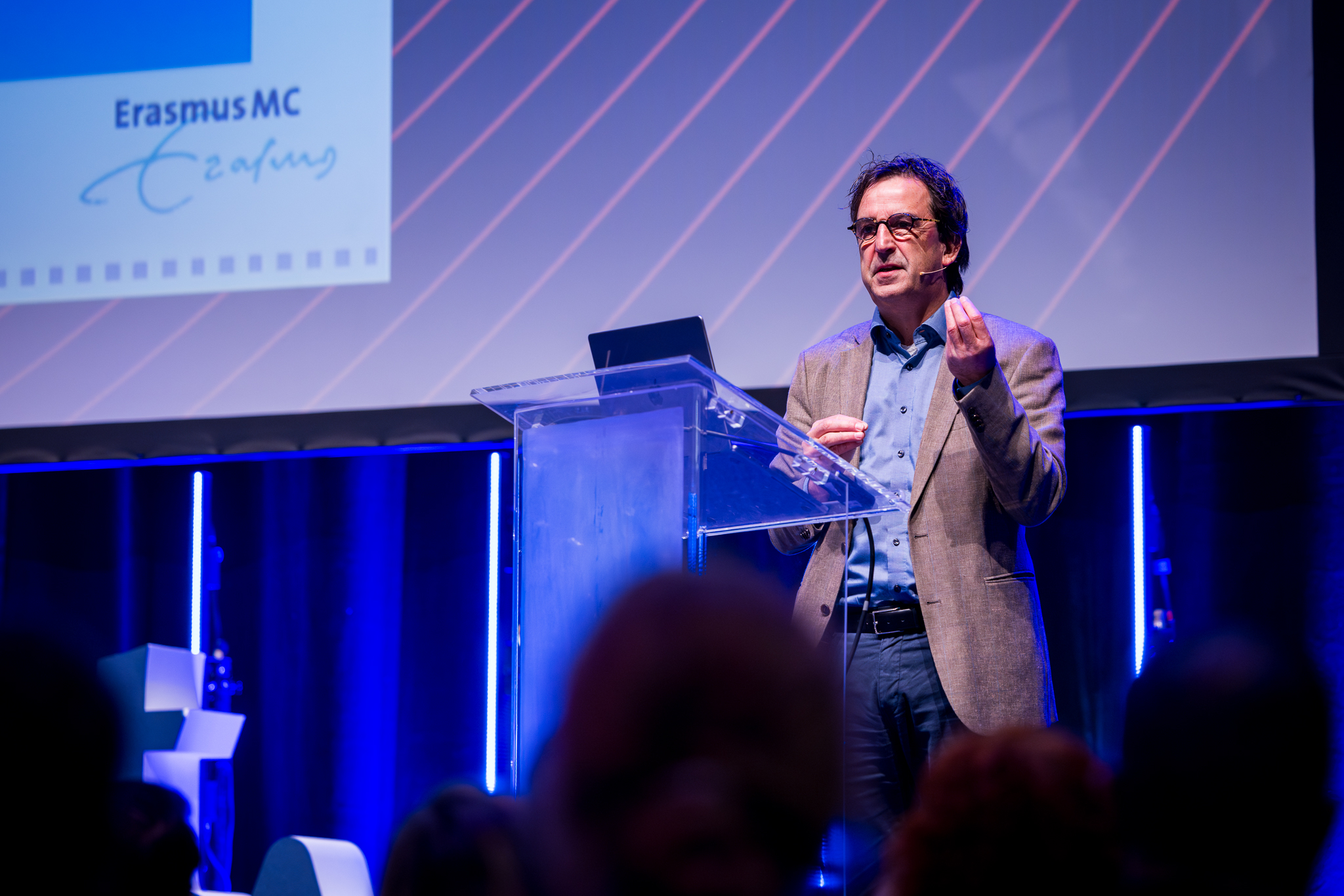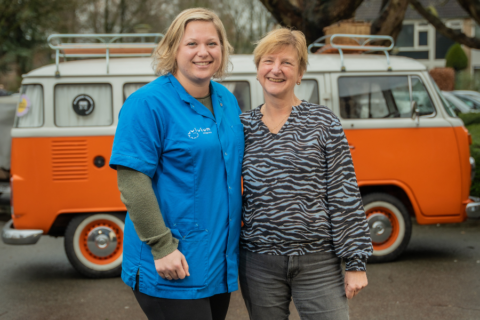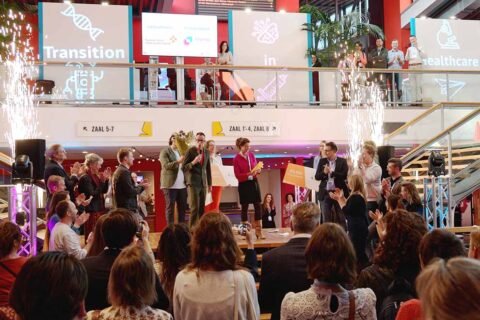AI and LLMs will make current electronic health records (EHRs) obsolete. Diederik Gommers made that prediction during Zorg & ict 2024. "We are in need of new systems with more flexibility. If I can directly access the hospital's source data with an LLM, I no longer have to click open all kinds of complicated tabs."
Intensivist Gommers, also head of the Intensive Care Department at Erasmus MC Sophia, underlined in Utrecht the importance of wide application of new digital technology.
"Since corona, we know what scarcity in health care feels like," Gommers told the audience, which had flocked in large numbers. "There are incredible personnel shortages. Will soon one in four people working in health care have to go to work? That is simply not possible. It's five to twelve, but we just keep going. To keep care accessible, things have to be radically different."
Talking to patients
Gommers pinned his hopes on further application of artificial intelligence (AI) and large language models (LLMs), the best known of which is ChatGPT. The title of his talk spoke volumes in this regard: "Healthcare will be totally different with generative AI. "Data can help us deliver better care," Gommers said. "Nurses spend 60 to 70 percent of their time administering, recording, making phone calls and organizing. They don't get around to talking to patients, even though that is a very important part of their work. That is also the reason they leave the profession. We have waited years for the automation of medical notes. That's going to reduce the administrative burden enormously."
Content quality
In addition to reducing routine administrative work, Gommers says AI can also increase the substantive quality and effectiveness of care. "Physicians compile information and create a treatment plan based on that information. In fact, they do the same thing as AI. With such decision support, we may need half as many intensivists in a few years. Is that desirable? I think so, because basically it means doctors will have more time for difficult patients."
Predictive medicine
Gommers expects AI to eventually lead to predictive medicine, where doctors can anticipate disease progression, outcomes and complications. As far as Gommers is concerned, there are conditions attached to this. "Algorithms must be responsible," Gommers said. "It must be explainable what a decision is based on and it must be clear how it can be verified."
Also, the source data must be clean, or -in the words of Gommers- "properly written away and labeled." Last but not least, the ethical dimension deserves attention. Discriminatory algorithms are out of the question. To include ethical considerations at an early stage, Erasmus MC and TU Delft have started an "ethics lab" for digital technology.
To Gommers' chagrin, the current state of digital technology is not yet keeping pace with the rapid advances in AI. Hospital information systems, which form the digital foundation of healthcare, are still proving difficult to handle and at odds with clinical practice, according to Gommers.
Millennials
"In Erasmus, I work a lot with millennials. They regularly ask: why do you accept such slow systems? I grew up with paper, so at first I thought the current generation of information systems was already quite an improvement. But we are ready for new systems with more flexibility. What if we soon use LLMs to create an SPD. Now I have to click all kinds of tabs. That can be much simpler."
In any case, according to Gommers, the willingness of staff need not be a barrier to wider adoption of AI in healthcare. "We thought there would be a barrier, but a recent survey of our own staff shows that the majority would use AI."
In addition, international research shows that healthcare is the sector with the highest relative investment in AI. In view of these figures, Gommers did want to make another prediction: "The Care & ICT fair is going to double in size in the next few years."




